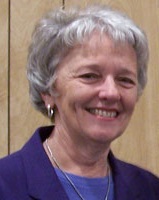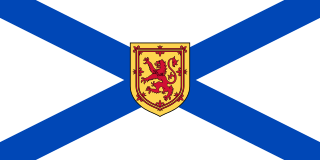
Cape Breton Centre is a provincial electoral district in Cape Breton, Nova Scotia, Canada, that elects one member of the Nova Scotia House of Assembly.

The 32nd Nova Scotia general election was held on September 6, 1988 to elect members of the 55th House of Assembly of the Province of Nova Scotia, Canada. It was won by the Progressive Conservative party.

The 30th Nova Scotia general election was held on October 6, 1981, to elect members of the 53rd House of Assembly of the Province of Nova Scotia, Canada. It was won by the Progressive Conservative party.
The 29th Nova Scotia general election was held on September 19, 1978, to elect members of the 52nd House of Assembly of the Province of Nova Scotia, Canada. It was won by the Progressive Conservative party.
The 28th Nova Scotia general election was held on 2 April 1974 to elect members of the 51st House of Assembly of the Province of Nova Scotia, Canada. It was won by the Liberal party.
The 27th Nova Scotia general election was held on 13 October 1970 to elect members of the 50th House of Assembly of the Province of Nova Scotia, Canada. It was won by the Liberal Party. It is the only election in Nova Scotia's history in which the party who won the popular vote did not win the most seats.
The 26th Nova Scotia general election was held on 30 May 1967 to elect members of the 49th House of Assembly of the Province of Nova Scotia, Canada. It was won by the Progressive Conservative Party.
The 25th Nova Scotia general election was held on 8 October 1963 to elect members of the 48th House of Assembly of the Province of Nova Scotia, Canada. It was won by the Progressive Conservatives.
The 24th Nova Scotia general election was held on 7 June 1960 to elect members of the 47th House of Assembly of the Province of Nova Scotia, Canada. It was won by the Progressive Conservatives.
The 22nd Nova Scotia general election was held on 26 May 1953 to elect members of the 45th House of Assembly of the Province of Nova Scotia, Canada. It was won by the Liberal party.
The 21st Nova Scotia general election was held on 9 June 1949 to elect members of the 44th House of Assembly of the Province of Nova Scotia, Canada. It was won by the Liberal party.
The 18th Nova Scotia general election was held on 20 June 1937 to elect members of the 41st House of Assembly of the Province of Nova Scotia, Canada. It was won by the Liberal party.
The 17th Nova Scotia general election was held on 22 August 1933 to elect members of the 40th House of Assembly of the Province of Nova Scotia, Canada. It was won by the Liberal party.
The 10th Nova Scotia general election was held on 2 October 1901 to elect members of the 33rd House of Assembly of the Province of Nova Scotia, Canada. It was won by the Liberal party.
The 5th Nova Scotia general election was held on 20 June 1882 to elect members of the 28th House of Assembly of the Province of Nova Scotia, Canada. It was won by the Liberal party, their first of ten consecutive wins that would see them retain power until 1925. The Conservatives were the only one-term government in Nova Scotia until 2013 when the NDP lost.
The 1st Nova Scotia general election was held on 18 September 1867 to elect members of the 24th House of Assembly of the Province of Nova Scotia, Canada. It was the first general election in Nova Scotia after Confederation, and was won by the Anti-Confederation Party.
Nova Scotia is a parliamentary democracy. Its legislature consists of the Lieutenant Governor of Nova Scotia and fifty-one members representing their electoral districts in the Nova Scotia House of Assembly. As Canada's head of state, Queen Elizabeth II is the head of Nova Scotia's chief executive government. Her duties in Nova Scotia are carried out by the Lieutenant-Governor, Arthur LeBlanc. The government is headed by the Premier, Stephen McNeil, who took office October 22, 2013. Halifax is home to the House of Assembly and Lieutenant-Governor. The House of Assembly has met in Halifax at Province House since 1819.
James "Buddy" MacEachern was a Canadian politician from Nova Scotia. He represented the electoral district of Cape Breton Centre in the Nova Scotia House of Assembly from 1974 to 1981. He was a member of the Nova Scotia New Democratic Party.
Michael A. Laffin is a Canadian former politician and dentist. He represented the electoral district of Cape Breton Centre in the Nova Scotia House of Assembly from 1963 to 1974, and 1981 to 1988. He was a Progressive Conservative.




